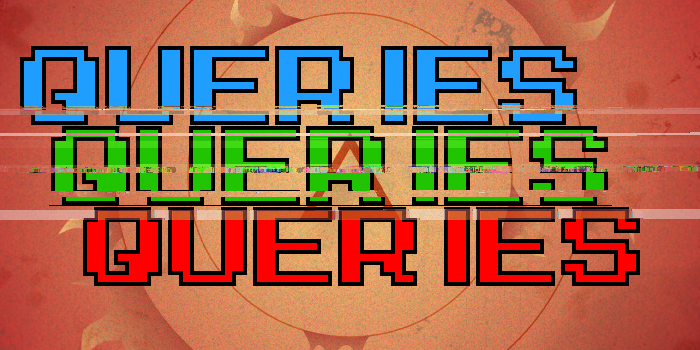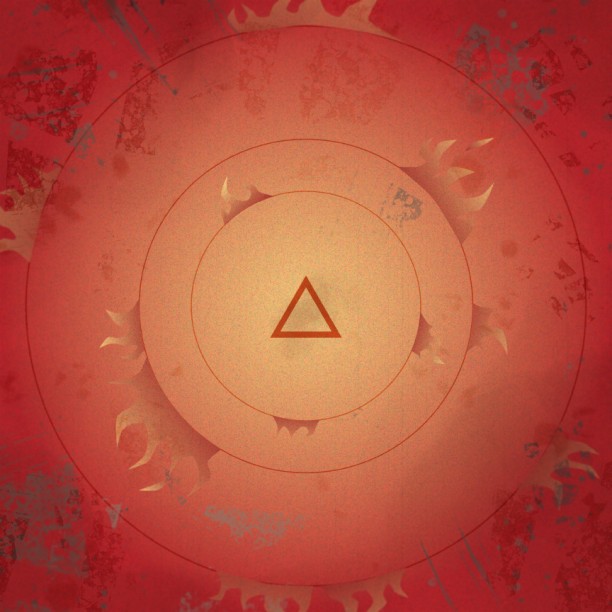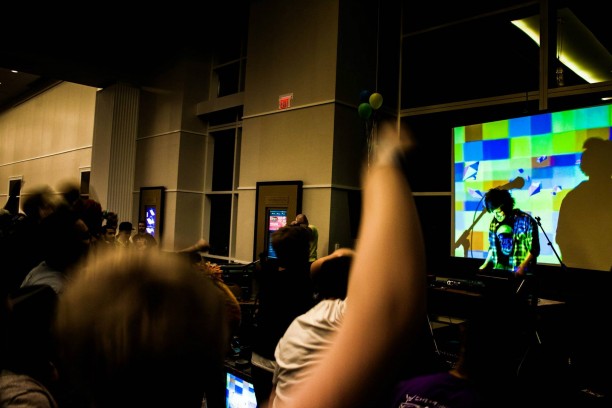
Queries
Queries: Kubbi (Episode 6)
Daniel Lamplugh: So, today we have one of my absolute favorite musicians and internet persons. Chiptune extraordinaire, pixel cat enthusiast, and musical ass-kicker, Kubbi.
Kubbi: Hey y’all!
DL: So, firstly, if I may gush for a minute, I love your stuff. I remember, when I used to do the weekly Twitter spotlights for µCollective, and whenever I would see you release a new track, it would immediately tweet it as part of my personal picks for that week. When “Planet I (Troposphere)” came out, I listened to it on repeat. So yeah, your stuff is pretty cool.
K: Woah! That’s awesome to hear, thanks buddy.
DL: So, you just released a new album, Ember (which is fantastic). It always seemed to me like your albums have very defined themes. Do you see it that way? Do you start with a theme before you begin writing, or do you just start writing and see how it connects later? If you do apply a theme, what is the theme you had in mind for Ember?
K: Ember was kind of special. After throwing different concept ideas back and forth for two years I decided I just wanted to focus on warmth. That’s the keyword I used for everything from composition to production. However, Ember is also part of a much bigger adventure.
DL: You seem to have been pushing out past chiptune as your albums progress: Sleet was mostly chiptune (or “fakebit” as you have called it, since it isn’t strictly LSDJ), Circuithead began to branch out a bit more into a wider breadth of electronic music as well as adding vocals, and Ember goes even further (including strings in “Overworld”, a vinyl crackle and piano in “The Cairn”, as well as the piano and strings in “Formed by Glaciers”, and of course the tons of different electronic elements). Do you look to expand outward when you make a new album, or do you just see what fits naturally as you write?
K: Definitely. Now what’s funny is that it’s more chiptune than ever. I’m actually making most of the chipsounds on 2 Game Boys running LSDJ rather than samples and plug-ins. Naturally I have to evolve my sounds and have been working hard on my sound design and synth/sampling work. Though I’m sure some would prefer the Sleet sound, it just doesn’t make any sense to not strive to change for the better.
DL: You said that Circuithead was a follow-up to Sleet, and that you had basically been working on it since the day Sleet was released. Do you consider Ember to be the next step in the saga? Did you start working on Ember as soon as Circuithead finished, or did you take a sabbatical?
K: Ember is actually the beginning of this whole new thing. Releasing Circuithead taught me a bunch about my own production and composition and it took me over 2 years to write my next full length. This was a completely new experience considering how frequent my releases were before but I personally think it was a necessary and good change. Right now I consider Ember to be a milestone and the start of a new era for me.
DL: Your albums always strike me as a sort of dreamscape-like electronic music (Ember particularly gives me vibes of Madeon’s most recent stuff from Adventure), and for me, it always comes visually as I listen (though, I am a visual person). I have heard of people knowing their music in different ways: some as notes, some as stories or visuals, others as numbers even. How do you think of music?
K: It very much depends on the style and sound. Sometimes I experience the music as the most immersive storytelling and sometimes it just mesmerizes me with colorful sound scapes. However listening to the stuff that just makes you smile and tap your foot can be one of the best musical experiences ever.
DL: How do you come up with song names? Do they just jump out at you as you write, or do you actually have to think about it a while?
K: I like cool sounding words! But most importantly I like relevant cool sounding words. I want everything in my music to represent a story, mood or atmosphere at all times, and the title is maybe the most important part to set the thematic footing.
DL: You mention on your website that you don’t often collaborate. Is there some part of your method or process that makes you not easy to collaborate with? Or do you just choose not to? As well, if you could collaborate with an artist, who would it be?
K: I’d seriously love to collaborate with anyone that asks but it’s just not possible for me. My way of writing music requires a very private and personal thinking space. I just feel I work best alone, but whenever I try working with other people I’m reminded how good music can get when you combine the best parts of multiple minds. If there was one person I’d love to collaborate with it would probably be Maynard James Keenan.
DL: Now, going further back, how did you get involved in chiptune?
K: By just hanging out on the internet. For some reason I was searching for “8-bit music” and was redirected to the now long gone forum of 8 Bit Collective. I lurked around for a few years and tried recreating the sounds in different ways. I was already writing music and found chiptune to be a fun little break from the stuff I was usually writing.
DL: The chiptune community has always been very connected, and it often hosts events or concerts. How is the chiptune scene in Norway? Is there a lot of activity, or are the Scandinavians not warmed up to chiptune?
K: Scandinavians are definitely warmed up with definitely Sweden having some of the biggest veterans of chiptune. Norway however doesn’t have that much of a scene. I have yet to hear of a single chiptune live event here. However I know we have a few artists so it needs to happen at one point.
DL: Now, you often release your music for free, even full albums (in a “pay what you want” structure). Do you make a living off your music? If not, are you going to stick with it?
K: Though I’m getting to a point where I can’t give away my music for free anymore, it’s always given me a lot of joy. All I ever wanted to do was just making music and letting anyone listen to it. I’ve always enjoyed it, but I don’t believe the “pay-what-you-want” is something my audience necessarily needs or even wants. I definitely value my music and need to make a living like everyone else. The chance “Ember” will be the last free album I release is real.
DL: Your music is released independently online. Do you remain independent by choice, or by necessity? Have you had any offers to sign to labels?
K: Plenty but I’ve stayed independent just because I think I can do better myself. At least than the offers I’ve got so far. However if there comes an offer I can’t refuse I won’t say no just cause of principle.
DL: When are we going to see Kubbi play live? Do you have the chance to play live outside your area often, or not? Are we ever going to see Kubbi tour?
K: I believe so yes. The wait is almost over :)
DL: You mention that one of your songs even ended up on National Geographic. What song, and how the hell did that come about?
K: Just by being discovered by Endemol on Soundcloud. We exchanged emails and I ended up licensing them some tracks for their show ‘Going deep with David Rees’. Kind of funny to just randomly say “hey y’all my music’s on nat geo”.
DL: Do you have any special message you’d like to send to the readers of this post?
K: Thanks for reading and I hope you all are having a great day ´ ▽ ` )ノ
DL: Lastly, can I beat you in Super Smash?
K: You can try!!

